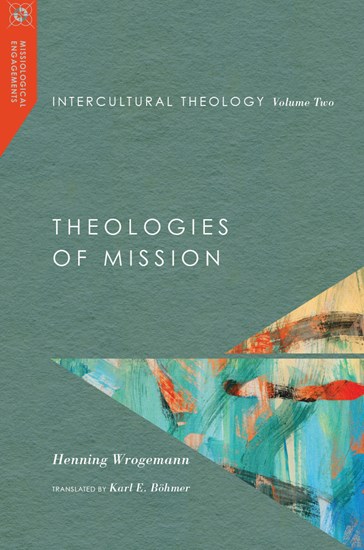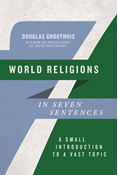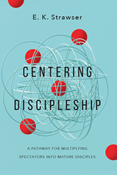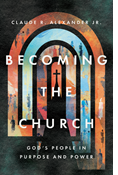
|
Intercultural Theology, Volume Two
hardcover
|
- Length: 475 pages
- Dimensions: 6 × 9 in
- Published: January 09, 2018
- Imprint: IVP Academic
- Item Code: 5098
- ISBN: 9780830850983
-
Other Retailers:
Amazon*
*affiliate partner
Christianity is not only a global but also an intercultural phenomenon.
In this second volume of his three-volume Intercultural Theology, Henning Wrogemann turns to theologies of mission. Mission theologies, he argues, are found in a wide range of implicit as well as explicit forms, from the practice of Christian presence by a Pakistani Christian among a marginalized people to the published deliberations of mission scholars in the West. The task of intercultural theology is to investigate and promote awareness of the variety of culture- and context-specific theologies of mission.
From Warneck to Bosch, from Edinburgh to Lausanne to Busan, Wrogemann provides an overview of the theological underpinnings, rationalizations, and visions for mission and its practice. Tracing developments across a range of Christian traditions, movements, themes, and regions of the globe, from Europe and North America to sub-Saharan Africa, Wrogemann presents us with an array of mission theologies across the scope of the modern missionary movement. This rich conspectus is rounded out with the doxological dimension of mission and the varied facets of oikoumenism.
Masterful in its scope and detail, this volume will richly inform the study of missiology and global Christianity. And it is essential reading for doing theology in a multicultural key. In a day when the church in the West struggles to understand and appreciate its missionary legacy and calling, Wrogemann's work sparkles with its deeply informed insights and inspiring vision.
Missiological Engagements charts interdisciplinary and innovative trajectories in the history, theology, and practice of Christian mission, featuring contributions by leading thinkers from both the Euro-American West and the majority world whose missiological scholarship bridges church, academy, and society.
"Henning Wrogemann continues from his Intercultural Theology Volume One, on the need for understanding among the diverse world Christian churches, with Volume Two, an articulation of the range of diverse mission theologies in those churches. Amid the diversity, however, he ends with a nuanced discussion of the foundation that unifies all mission theologies: an oikoumenical, doxological understanding of mission. The spiritual foundation of all mission, he argues, is that we all do mission to praise God as we experience God's power. Another tour de force for Wrogemann."
"The publication in English of Volume Two of Henning Wrogemann's Intercultural Theology is to be heartily welcomed. The book covers a phenomenal range, in terms of period, Christian tradition, and theme. All future students of the theology of Christian mission will want to consult this seminal and insightful work."
"Following the acclaimed first volume of Intercultural Theology, the English translation of this second volume, Theologies of Mission, breaks new ground in mission studies and intercultural theology. While never losing sight of his context in Germany, Wrogemann begins with an overview of developments in mission theology over the past century and then spotlights how major church traditions have handled the subject. Next, he offers an illuminating comparison of approaches to contemporary controversies in mission and concludes with a constructive approach he calls 'mission as oikoumenical doxology.' The scope of this volume is grounded and global, empirical and theoretical, and the methodology Wrogemann presents is highly instructive for those trying to make sense of the myriad theologies of mission in the context of world Christianity today."
"It's hard to take in the whole of this impressive volume. Positioned within the discourse of the ecumenical movement, it nevertheless pays careful attention to other traditions to offer a magisterial treatment of contemporary theologies of mission. Wrogemann brings theology of mission up to date by incorporating a world Christianity perspective that emphasizes local reception and initiative and is also attentive to gender and regional diversities. Not only is Theologies of Mission comprehensive as a textbook, it also proposes a theology of 'mission as the glory of God' that emphasizes its spiritual sources, which will interest other theologians. We will be digesting and using this book for a long time to come."
"In this comprehensive and magisterial study of theologies of mission, developed down through history and a century of twelve international world mission conferences, across the ecumenical and evangelical spectrum, and paying close attention to the various cultural and social contexts in which theologies of mission emerge, Wrogemann has made an immense contribution to missiology and mission studies. His attention to detail in the different theologies of mission, while at the same time enabling the reader to understand the breadth and complexities of theologies of mission, is a monumental achievement that Wrogemann does brilliantly. This second volume of Intercultural Theology will surely become a classic text and be of immense value to both academics and practitioners of mission."
"Wrogemann has provided an impressive volume that makes a significant contribution to the discipline of missiology that will be a required text in mission studies programs."
CONTENTS
Preface to the English Edition (2017)
Preface to the German Edition (2013)
1. To Set the Tone: Mission—Surprisingly Different
2. Developments to Date: An Introductory Overview
Part I: Developments in Mission Theology in the Twentieth/Twenty-First Centuries
3. On the Beginnings of Mission Studies: Gustav Warneck
4. Salvation-Historical Theology of Mission: Karl Hartenstein and Walter Freytag
5. From Edinburgh to Achimota: The World Missionary Conferences from 1910 to 1958
6. A History-of-the-Promise Theology of Mission: Johannes Christiaan Hoekendijk
7. From New Delhi to Uppsala: Churches, Missions, and Decolonization (1961–1968)
8. Ecumenists and Evangelicals: The Controversies of the 1970s (1968–1979)
9. From Melbourne to Salvador de Bahia: Poverty, the Fall of the Wall, and Globalization (1980–1996)
10. From Athens to Busan: The Challenges of the Early Twenty-First Century (2005–2013)
Part II: Theologies of Mission in the Plural: Confessional and Contextual Profiles
11. Roman Catholic Mission Theology Before and After Vatican II
12. Orthodox Mission Theology in the Twentieth and Twenty-First Centuries: An Overview
13. North American Protestantism: God’s Chosen Nation?
14. The Anglican Church: Mission-Shaped Church
15. Mission Theological Profiles in Pentecostal Churches and Movements
16. Missionary Initiatives and Challenges
Part III: Continents, Context, Controversies
17. Mission and the Kingdom of God: From Liberation to Martyrdom?
18. Mission and Money: Is God the Friend of the Poor or of the Rich?
19. Mission and “Power”: Healing and Deliverance?
20. Mission and Dialogue: Love Affair or War of the Roses?
21. Mission and Gender: The Sexes and Interculturality?
22. Mission and Conversion: A Change of Religion, or Transformation?
Part IV: Mission as Oikoumenical Doxology: A New Theological Approach
23. The Source of Strength for Christian Mission, and the Forms It Takes
24. The Doxological Dimension: Mission as the Glorification of God
25. The Oikoumenical Dimension: Mission Across the Ecumenical Spectrum
Bibliography
Name Index
Subject index
Scripture Index












